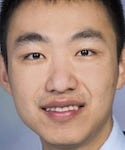Multidisciplinary awards support high-risk, high-reward initiatives
Rice University’s Creative Ventures Funds Program has awarded grants to four Rice researchers and their colleagues through the fall round of InterDisciplinary Excellence Awards (IDEA).
The winners are ecologist Amy Dunham, civil and environmental engineer Jamie Padgett, geochemist Laurence Yeung and materials scientist Hanyu Zhu.
The two-year grants for up to $75,000 support new research and academic partnerships by at least three faculty members across multiple schools. They support high-risk, high-reward initiatives that lead to proposals to generate new centers or programming with multiple principal investigators.
The proposals are reviewed by the Office of Research, with input from the University Committee on Research. The program supports the university’s goal to invest in faculty to achieve preeminence, as well as to elevate research achievement and reputation, both goals of Rice’s Vision for the Second Century, Second Decade.

Amy Dunham
Dunham, an associate professor of biosciences, proposed a creative collaboration between science and art that will catalogue the flora and fauna of Madagascar’s rainforest to serve both disciplines. The project will benefit from Dunham’s extensive work in Madagascar and engage Rice’s STEM and visual and dramatic arts students in international interdisciplinary research and scholarship.
Her co-principal investigators are Allison Hunter, an artist in residence in visual and dramatic arts, and Lydia Beaudrot, an assistant professor of biosciences.

Jamie Padgett
Padgett, an associate professor of civil and environmental engineering, proposes a new paradigm for the “smart resilience” of communities, using data from intelligent hazard and infrastructure systems to help them withstand, respond, adapt to and recover from disasters. The initiative will combine such systems with data science and organizational and behavioral psychology to improve the safety of flood-affected communities.
Her co-principal investigators are Danielle King, an assistant professor of psychological sciences; Devika Subramanian, a professor of computer science and of electrical and computer engineering; and Phil Bedient, the Herman Brown Professor of Engineering and chair of civil and environmental engineering.

Laurence Yeung
Yeung, an assistant professor of Earth, environmental and planetary sciences, seeks to build environmental isotopic gas sensors that do not require the cumbersome, power-hungry and labor-intensive laboratory procedures used by current techniques. The sensor would utilize laser-based Raman spectroscopy and unique single-pixel camera technology developed at Rice in a compact, sensitive and robust analytical tool suitable for a broad range of applications.
His co-principal investigators are Kevin Kelly, an associate professor of electrical and computer engineering, and Rob Griffin, a professor of civil and environmental engineering and of chemical and biomolecular engineering and senior associate dean for administration and planning in the Brown School of Engineering.

Henry Zhu
Zhu, an assistant professor of materials science and nanoengineering, proposes a technique to use light to search and control topological magnons — quasiparticles of electron spin in a lattice — that are expected to exhibit quantum coherent coupling above cryogenic temperatures. If experimentally confirmed, these particles can potentially carry information without loss in future sensors and processors.
His co-principal investigators are Pengcheng Dai, a professor of physics and astronomy, and Junichiro Kono, a professor of electrical and computer engineering, of physics and astronomy and of materials science and nanoengineering.

